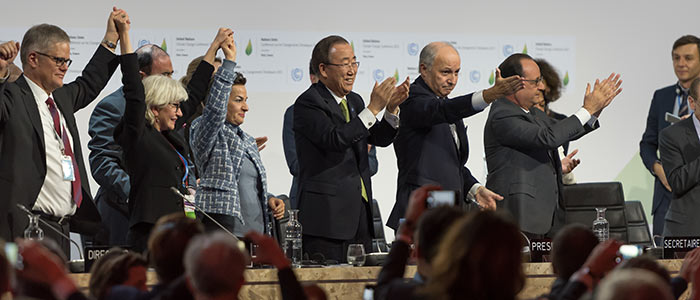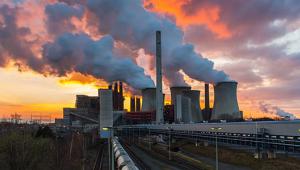Web_ClimateConference_PA-25026119.jpg

World leaders celebrating the agreement of the Paris climate change accord at COP21.
Over 160 countries will ratify the deal, the largest number of countries to sign an international agreement in one day.
If all countries fully implement the pledges they made in Paris last year at the 21st high-level climate change conference, COP21, global temperatures are still predicted to rise by an average of 2.7°C – well above the agreed “safe” level of 2°C, or ideally 1.5°C.
In a message to mark the signing ceremony, UN secretary general Ban Ki-Moon said the momentum achieved by so many signatures on one day “sends a clear signal of solidarity and resolve”.
Each country will then need to legally ratify the documents and for some this means passing the document in parliament and establishing new laws. The accord cannot formally come into effect until 55 nations accounting for 55% of global emissions complete all the steps.
Some of the world’s largest emitters, including the US and China, are expected to join at some point this year. Others, like India, a country whose national plan results in a small rise rather than a fall in emissions, are expected to take longer.
The European Union is likely to lag behind too. Accounting for 9% of global emissions, if the EU, China (24%) and the US (12%) were all to formally join, it would likely be enough to make the deal operational.
But it is yet to be agreed how emissions cuts will be shared between the EU’s 28 member states, and each member state will still have to ratify the deal individually once that has been decided.
Thirteen countries, mostly small island developing nations that are facing the most imminent threat from climate change such as the Marshall Islands and Fiji, have already taken the necessary steps and will formally join the agreement today.
Fiji’s parliament voted to ratify the agreement in February, making it the first country in the world to do so.
However, senior figures said that nations would need to speed up their actions as climate change takes hold.
Robert Glasser, the United Nations special representative for disaster risk reduction, cautioned: “We are in real danger of being overtaken by the rapid pace of global warming, if signatories do not significantly scale up the level of ambition to reduce greenhouse gas emissions.”
Already in 2016, global temperatures have been record-breaking. A particularly strong El-Niño weather pattern, which causes the cyclical warming of the Pacific Ocean, has given a worrying glimpse of things to come if the world can’t keep global warming under control. It has led to severe floods, droughts and other erratic weather worldwide, with continents like Africa, Asia and South America the worst-affected.
Yesterday, the Carbon Pricing Panel, which is convened by the World Bank and International Monetary Fund,called for faster action on carbon pricing in order to deliver the Paris accord.
Leaders, including French president François Hollande, German chancellor Angela Merkel, OECD secretary-general Angel Gurría, Chilean president Michelle Bachelet and Mexico president Enrique Peña Nieto, challenged the world to expand carbon pricing to cover 25% of global emissions by 2020 – double the current level – and to achieve 50% coverage in the next decade.











